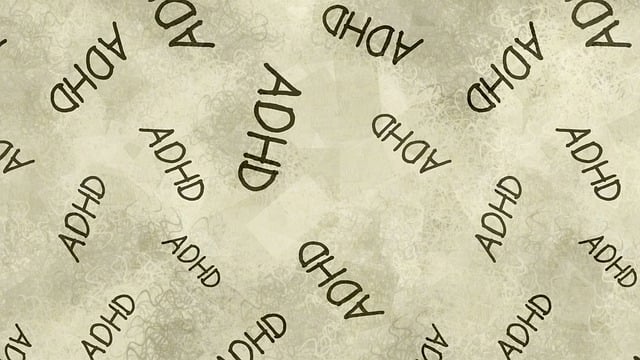Denver International Adoptions Therapy (DIAT) leverages Crisis Intervention Teams (CITs) for immediate and short-term mental health support, integrating burnout prevention strategies for both patients and therapists. Their specialized program for complex adoption cases equips adoptive parents with coping skills through comprehensive training on self-esteem improvement, communication, stress management, and emotional regulation. DIAT's rigorous crisis intervention training from reputable organizations uses evidence-based strategies and immersive scenarios to prepare professionals for effective de-escalation and mood management, ultimately improving outcomes for individuals facing emotional turmoil.
“In the dynamic landscape of mental health support, crisis intervention teams (CITs) stand as a crucial resource, especially in cities like Denver where complex cases demand specialized attention. This article explores the vital role of these teams and delves into the unique programs shaping their effectiveness, particularly focusing on the Denver International Adoptions Therapy Program’s approach to handling challenging situations. By examining training methodologies, we uncover how professionals are equipped to navigate crisis scenarios with enhanced skills, ensuring better outcomes for those in need.”
- Understanding Crisis Intervention Teams: A Vital Resource in Denver's Therapy Landscape
- The Denver International Adoptions Therapy Program: Specializing in Complex Cases
- Training Programs: Equipping Professionals for Effective Crisis Support
Understanding Crisis Intervention Teams: A Vital Resource in Denver's Therapy Landscape

Crisis Intervention Teams (CITs) are a vital resource in Denver’s therapy landscape, offering specialized support for individuals facing severe emotional distress. These teams, composed of mental health professionals from various disciplines, provide immediate assistance and short-term treatment to those experiencing crises. Denver International Adoptions Therapy has recognized the importance of CITs in effectively addressing and preventing mental health emergencies.
By integrating burnout prevention strategies for healthcare providers, such as self-esteem improvement techniques, CITs ensure that both patients and therapists receive the care they need without succumbing to stress or fatigue. Regular risk assessment for mental health professionals is also a key component, allowing for early identification of potential risks and implementing appropriate interventions. This comprehensive approach not only enhances the quality of care but also contributes to the overall well-being of the community by fostering a more resilient and supportive environment.
The Denver International Adoptions Therapy Program: Specializing in Complex Cases

The Denver International Adoptions Therapy Program stands out for its specialized approach to crisis intervention in complex adoption cases. This program recognizes that adopting a child often comes with unique challenges, including potential trauma and adjustment issues for both the adoptive parents and the child. As such, it offers tailored support aimed at fostering healthy family dynamics and mitigating risks of burnout among adopters. Through comprehensive training, the program equips participants with essential coping skills to navigate the complexities of adoption, ensuring they can provide stable and nurturing environments for their adopted children.
By focusing on self-esteem improvement and burnout prevention, Denver International Adoptions Therapy Program helps adoptive families build resilience and strengthen their bonds. The program’s holistic approach includes strategies for effective communication, stress management, and emotional regulation, all designed to enhance the overall well-being of both parents and child. This specialized training is particularly crucial given the unique challenges that arise in complex adoption situations, making it a valuable resource for those seeking to navigate this intricate process successfully.
Training Programs: Equipping Professionals for Effective Crisis Support

Effective crisis intervention begins with comprehensive training programs designed to equip professionals across various fields with the skills needed to support individuals during intense moments of distress. These programs, such as those offered by Denver International Adoptions Therapy, go beyond basic emergency response protocols. They immerse participants in scenarios mirroring real-world crises and teach evidence-based strategies for de-escalation, communication, and emotional regulation. Professionals learn to recognize signs of mental health distress, implement mood management techniques like mindfulness meditation, and provide a safe space for clients to process their experiences.
The curriculum for crisis intervention team training (CIT) programs incorporates essential elements like Mental Health Education Programs Design, ensuring that trainees gain a deep understanding of common mental health challenges. They learn how to assess risk, develop personalized support plans, and connect individuals with appropriate resources. By fostering an environment where professionals feel empowered to handle crises effectively, these programs ultimately contribute to better outcomes for those facing emotional turmoil.
Crisis intervention team (CIT) training programs play a pivotal role in equipping professionals to handle complex situations effectively. As demonstrated by the Denver International Adoptions Therapy Program, specialized training ensures that teams like these are prepared to support individuals and families navigating crises, offering vital resources within Denver’s therapy landscape. By investing in comprehensive CIT training, we enhance our ability to respond to emergencies, ultimately fostering a more resilient community.














